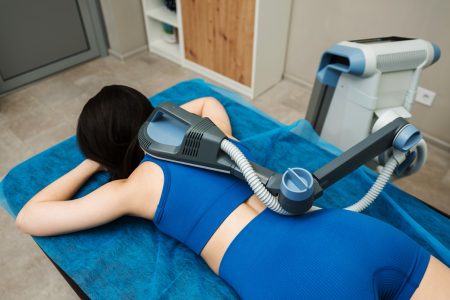Why DNP-Prepared Nurses Are Essential for Technology-Enabled Care

The healthcare landscape is undergoing a profound transformation, driven by an unprecedented surge in technology-enabled care. From telehealth and artificial intelligence (AI) to remote monitoring devices and sophisticated electronic health records (EHRs), technological advancements promise to revolutionize patient care, improve access, and enhance efficiency.
However, simply implementing technology is not enough. For these innovations to truly deliver on their promise, they must be seamlessly integrated into clinical practice, ethically managed, and strategically deployed to optimize patient outcomes.
This complex challenge demands a new kind of leader: one who possesses deep clinical expertise, understands intricate healthcare systems, and can navigate the rapidly evolving world of technology. This is precisely where Doctor of Nursing Practice (DNP) prepared nurses to become indispensable.
With their terminal clinical degrees, DNPs are uniquely positioned to bridge the gap between cutting-edge technology and compassionate, patient-centered care, making them essential for the successful adoption and optimization of technology-enabled care.
Leading Technology Adoption and Integration
The integration of new technologies into existing healthcare workflows is rarely straightforward. It requires strategic planning, meticulous implementation, and effective change management. DNP-prepared nurses in leadership, with their advanced education in systems thinking, organizational leadership, and project management, are ideally suited to lead these initiatives. They understand the intricacies of healthcare delivery, allowing them to anticipate potential barriers, design user-friendly interfaces, and ensure new technologies genuinely enhance, rather than disrupt, care processes.
DNPs can champion the adoption of new tools, foster interoperability between disparate systems, and develop robust training programs for staff. Their ability to translate complex technological concepts into actionable clinical practices ensures that technology is not just present but truly utilized to its full potential by the entire care team.
Ensuring Evidence-Based Technology Implementation
Not all technology is created equally, and not every innovation offers a clear benefit to patient care. DNP nurses are grounded in evidence-based practice (EBP), which equips them to critically evaluate the efficacy and safety of new technologies before widespread adoption. They possess the skills to analyze research, conduct systematic reviews, and design quality improvement (QI) initiatives to assess the impact of technology on patient outcomes, cost-effectiveness, and provider satisfaction.
This rigorous, data-driven approach prevents healthcare organizations from investing in unproven or ineffective solutions. DNPs ensure that technology implementation is not merely a trend, but a strategic decision founded on robust evidence, leading to better resource allocation and superior patient care.
Optimizing Patient Outcomes Through Data and AI
The proliferation of technology in healthcare generates vast amounts of data. From EHR entries and wearable device metrics to genomic information, understanding and leveraging this “big data” is crucial for advancing personalized medicine and population health. DNP-prepared nurses are trained in data analytics and informatics, enabling them to interpret complex datasets, identify trends, and translate insights into actionable.
For instance, DNPs can utilize AI-driven insights to identify patients at high risk for readmission, personalize treatment plans based on genetic profiles, or optimize resource allocation in acute care settings. Their clinical acumen ensures that technology’s analytical power is harnessed to improve patient safety.
Technology, Clinical Practice, and Patient Experience
One of the greatest challenges in technology-enabled care is ensuring that it remains patient-centered and does not inadvertently create a barrier between providers and patients. Their foundational understanding of human behavior, therapeutic communication, and patient education allows them to introduce technology in a way that empowers patients and enhances their engagement in their own care. They can design patient-friendly interfaces for telehealth platforms, simplify instructions for remote monitoring devices, and educate patients and families on the benefits and proper use of digital tools.
DNPs also advocate for health equity, addressing the “digital divide” and ensuring that technology-enabled care is accessible to all populations, regardless of socioeconomic status or technological literacy.
Shaping Policy and Ethical Frameworks
The rapid pace of technological innovation often outstrips the development of appropriate policies and ethical guidelines. DNP-prepared nurses, with their advanced knowledge of healthcare policy, advocacy, and ethics, are vital contributors to shaping the future of technology-enabled care. They can participate in legislative processes, advocate for regulations that protect patient privacy, data security, and ensure that AI and other advanced technologies are used in a fair, unbiased, and equitable manner. They are crucial voices in discussions about interoperability standards, reimbursement models for telehealth, and the responsible use of AI in clinical decision-making.
Educating and Empowering the Healthcare Workforce
The success of technology-enabled care ultimately depends on the competency of the entire healthcare workforce. DNP-prepared nurses are uniquely positioned as educators and mentors, capable of building the digital literacy and technological fluency of their colleagues. They can design and implement continuing education programs, provide hands-on training for new devices and software, and foster a culture of continuous learning and adaptation within their organizations.
By empowering front-line nurses, physicians, and other healthcare professionals with the skills and confidence to utilize technology effectively, DNPs amplify their impact, ensuring that technological advancements translate into tangible improvements across the entire medical industry.









This article brilliantly highlights how DNP-prepared nurses are pivotal in leveraging technology to enhance patient care. Their expertise in leadership, data analysis, and evidence-based practice ensures technology serves as a true asset in healthcare.